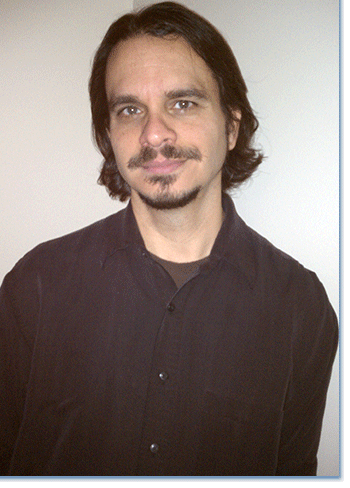AHA members are involved in all fields of history, with wide-ranging specializations, interests, and areas of employment. To recognize our talented and eclectic membership, AHA Today features a regular AHA Member Spotlight series.
Allan Austin is a professor of history at Misericordia University. He lives in Dallas, Pennsylvania, and has been a member of the AHA since 2000.
Alma mater/s: BA, MA, Bowling Green State University; PhD, University of Cincinnati
Fields of interest: 20th-century US history, with emphases on immigration, religion, and popular culture.
 |
When did you first develop an interest in history?
I have been interested in history for just about as long as I can remember. My parents were high school teachers—history and English—and I just grew up intrigued by the past and loving to write (although the writing about history part came a bit later). Given my lifelong interest in the subject, becoming a history major seemed natural. Although my parents often suggested getting a secondary education degree, too, I knew with great certainty that I would never teach—shows what a 20-year-old undergraduate knows, I guess! I was very lucky as a freshman and as a graduate student to land in the classroom with professors like Roger Daniels, Gary Hess, and Larry Friedman (among a long list) who got to know me, saw some potential, and helped me begin to see the ways in which I could make a living doing what I love.
What projects are you working on currently?
Having recently published Quaker Brotherhood: Interracial Activism and the American Friends Service Committee, 1917–1950, I have begun work on my next book with a colleague at Misericordia University, Patrick L. Hamilton. Tentatively titled “All New, All Different?” A Graphic History of Race and the American Super Hero, this book examines super-hero popular culture (in the form of comic strips, comic books, television, and film) as a means of understanding the ways in which Americans have wrestled with the vexed issues of race, ethnicity, and multiculturalism since the late 1930s.
Have your interests changed since graduate school? If so, how?
In some ways my interests have evolved a good deal, although I find myself continuing to explore fundamental questions that have interested me since my formative days in graduate school. In this regard, I have long been interested in the ever-shifting formation of our American identity, especially in the context of US relations with the rest of the world (first in terms of foreign policy as an MA student, then in terms of immigration while working on my PhD). Thus, while the topics of my books—Japanese American college students navigating exile, incarceration, and resettlement during World War II, American Quakers addressing racial inequalities in the early 20th century before the civil rights movement entered the national consciousness, and now super-hero popular culture as a window into mainstream conversations about race and multiculturalism—may seem somewhat scattered, the same basic questions about who we are as Americans and how we have shaped (and continue to shape) our understandings of ourselves remain central to my scholarship.
Is there an article, book, movie, blog, etc. that you could recommend to fellow AHA members?
Given my current research into graphic narrative and my interest in race and American identity, I would recommend Gene Luen Yang’s American Born Chinese, a short but powerful graphic novel that contemplates important issues about identity. If you’re interested in something a bit older, Miné Okubo’s Citizen 13660 remains a classic look at the exile and incarceration of Japanese Americans. Both, I would add, work well in the classroom, too.
What do you value most about the history profession?
While there is a lot I value about our profession—what’s not to love, after all, beyond perhaps committee work?—I especially appreciate opportunities to share what I know with broader communities. Being part of a larger conversation among historians is enriching, for sure, and I am also thankful for every chance I get to share what historians know with the broader public. Teaching small classes at Misericordia is a great way to do this with individuals who I get to know over the course of a semester. Presenting to the broader community—through invited talks, our Elderhostel program, and whatnot—is not only a rewarding experience but something that historians should do on a regular basis. If we are sharing what we know only with each other, we are falling short of a professional obligation to engage those outside our profession and to help to shape public conversations by grounding them in historical context.
Do you have a favorite AHA annual meeting anecdote you would like to share?
While the panels are always great, the best part of any AHA conference is connecting with people—in both planned and spur-of-the-moment ways—who I wouldn’t have chance to talk with otherwise. Quaker Brotherhood, for instance, was shaped in formative ways by a long conversation over a cheap lunch in a coffee shop at an AHA meeting.
Other than history, what are you passionate about?
As my kids get older, I find my interests outside of history shaped by their lives a good deal. My son Bobby has talked me into taking up rock climbing, a sport that is pretty easy to get obsessed with! My daughter Hope has introduced me to the theater in a new way, and I am gaining a deeper appreciation for how shows are put together. When I have a moment away from Bobby and Hope (which happens only every once in a while), I love to hang out with my wife, Vicki, who has supported me in this professional undertaking for 20-plus years and still remains the best friend I’ve ever had.
This post first appeared on AHA Today.
Tags: AHA Today Member News Member Spotlight
Comment
Please read our commenting and letters policy before submitting.






